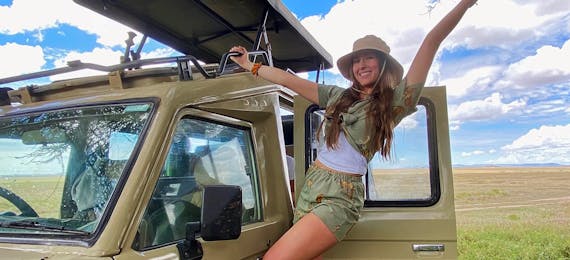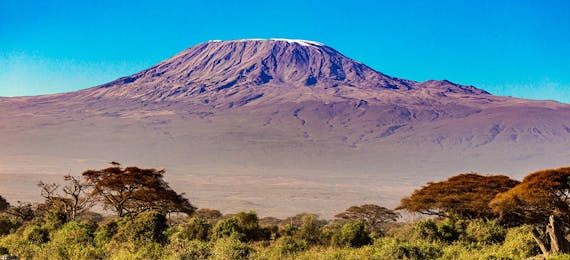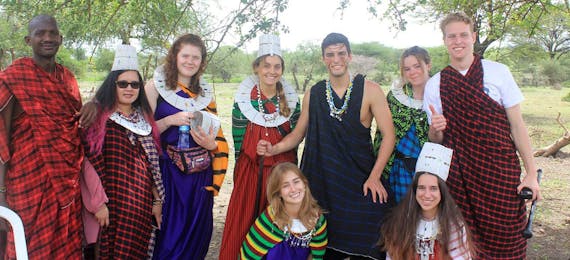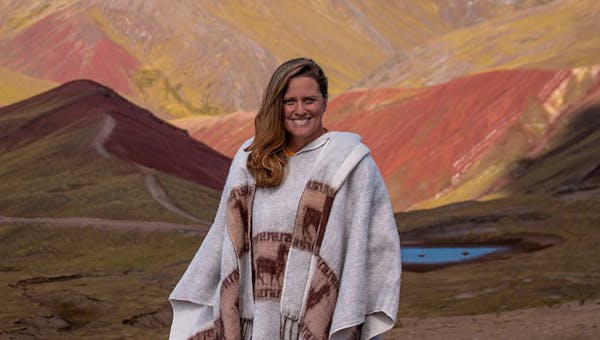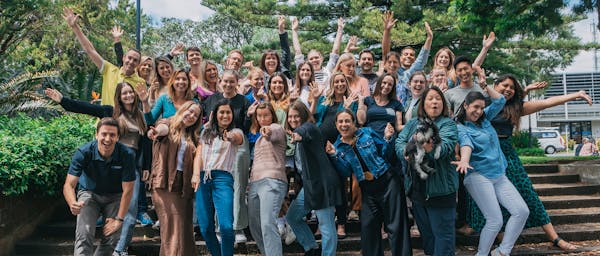Accommodation and WiFi
Makuyuni Village
In Makuyuni Village, volunteers will stay in Maasai Bomas and gather around the campfire each evening for dinner under the stars. Volunteers typically share a boma with one or two others of the same gender. These bomas are purpose-built to closely resemble traditional Maasai structures, providing an authentic experience.
A boma consists of a cluster of simple, traditionally crafted Maasai earth huts, typically made from mud, sticks, grass, and cow dung. Each hut is equipped with solar power, comfortable beds, and basic washroom/shower facilities. Although the living conditions are rustic, they are clean and comfortable.
Bedding is provided, but you will need to bring your own towel and toiletries. A sleeping bag is also recommended for cooler months. While at your Maasai accommodation, Wi-Fi is widely available.
Please note that private room upgrades and extra nights are not available in the village.
Arusha
Before heading to Makuyuni Village and after completing the program, Maasai Immersion volunteers are accommodated in dorm-style volunteer houses or homestays in Sakina, Arusha. These accommodations are standard for all volunteers involved in projects in Arusha. The local team offers three volunteer houses, generally suited for younger volunteers, and two homestays, which are often favored by families and more mature volunteers.
In the volunteer houses, volunteers share a room with one to nine others of the same gender, with most rooms accommodating up to six people. Homestays can accommodate up to 10 volunteers, with rooms also separated by gender and a maximum of four people per room. Living conditions in Arusha are basic but comfortable. Both volunteer houses and homestays have running water and electricity. Toilets and showers are Western-style, though power outages are common, which can affect the availability of hot water and electricity.
During the busy months of June, July, and August, the volunteer accommodations in Arusha may reach capacity. To ensure everyone is comfortably accommodated, some volunteers may be hosted in a nearby hotel in dormitory-style rooms separated by gender. Volunteers can expect to share a room with up to seven people.
Wifi is not available at homestays, and although volunteer houses have wifi, it is slow and unreliable. To stay connected, we recommend purchasing an e-SIM before arrival or bringing an unlocked mobile phone and buying a local SIM card in Tanzania. The local team can assist you with purchasing a SIM card and data during your program orientation. Complimentary wifi is available at the hotel.
If you wish to arrive before your recommended arrival date or extend your stay, extra nights at the standard accommodation can be arranged for AU$65 per person, per night. Extra nights include three meals a day, are subject to availability, and bookings can be requested by registered volunteers via their profiles.
Meals
Tanzanian cuisine varies across the country due to differences in produce found inland and along the coast. The immigration of Khoja Indians has introduced Indian flavors to local dishes. Staple foods in Tanzania include rice, ugali (maize porridge), chapatti, and beans. Rice and beans are significant components of meals, so expect to be served these often.
Volunteers are provided with three meals a day. Breakfast typically consists of eggs served with pancakes, mandazzi (deep-fried dough balls), or cake, along with plenty of fresh fruit, bread, and a selection of jams and other spreads for toast. Lunch and dinner usually feature a traditional meat dish (chicken or beef) alongside a vegetable dish, beans, lentils, or cooked vegetables served with rice, pasta, chips, or chapatti.
In Arusha, meals are prepared by host families for those staying in homestays, and by cooks at the volunteer houses. During the busy season, volunteers accommodated in the hotel will receive their meals on-site. In Makuyuni Village, meals are also prepared by cooks for all volunteers.
Bottled water is readily available in Tanzania, and volunteers should budget approximately AU$8 per week for 2 liters a day. Filtered water is also available at the accommodations, and you can choose between purchasing bottled water or using the free filtered water provided in the houses and bomas.
If you have any special dietary requirements, please inform us so that the local team can make arrangements for you. They can provide vegetarian meals and options that are dairy-free, gluten-free, and nut-free. However, vegan, halal, and kosher options are not available.
Keep in mind that your eating experience may differ from what you’re accustomed to at home. The local team will do their best to accommodate your needs and ensure volunteers are well taken care of, but it’s essential to remain flexible.



























































































